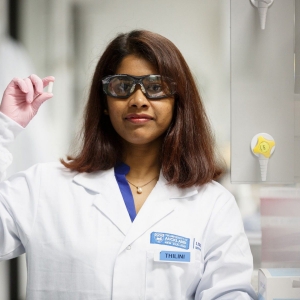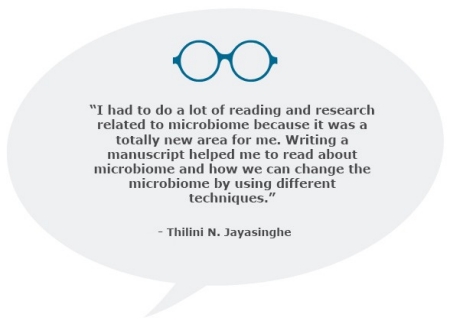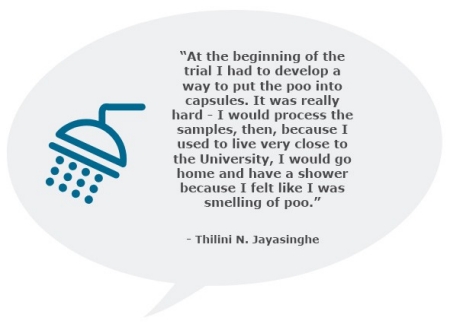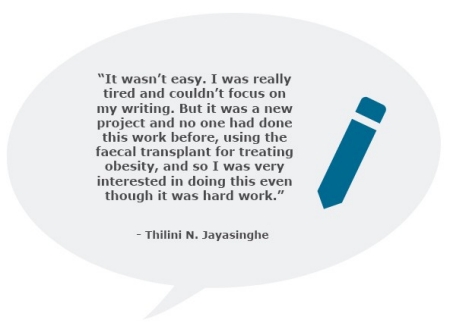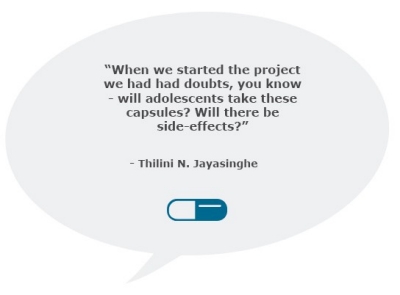Processing other peoples’ poo - putting it into little capsules which can be swallowed like pills – was one of Thilini’s many tasks during the pilot study (a small study to test an idea) for the Gut Bugs trial.
Thilini N. Jayasinghe is part of the team of Gut Bugs scientists from the Liggins Institute, The University of Auckland. The “poop team” wanted to know if faeces (poo) from lean, healthy people could be transplanted into adolescents who were affected by obesity.
Thilini completed high school and her university degree in Food Science and Nutrition in Sri Lanka. She liked science at school, being especially interested in medical science and human biology. In the final year of her degree, Thilini enjoyed completing some small-scale research projects. She decided to complete a PhD in medical sciences which could lead to a career as a medical researcher. A Masters degree was the next step on the path to a PhD. Thilini studied at Sydney University to complete her Masters in the field of molecular bioscience.

